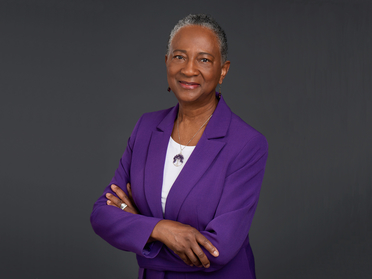
Jamesetta A Newland
PhD DPNAP FNP-BC FAAN FAANP
Clinical Professor Emerita
jan7@nyu.edu
1 212 998 5319
433 FIRST AVENUE
NEW YORK, NY 10010
United States
Jamesetta A Newland's additional information
-
-
Prof. Jamesetta (Jamie) Newland is Clinical Professor Emerita at NYU Rory Meyers College of Nursing. A strong proponent of faculty practice, she spent much of her clinical practice in nurse-managed health centers (NMHCs), holding positions as direct care nurse practitioner (NP), administrative director, and consultant to other academic nursing schools on NMHCs and faculty practice. She has taught master's and doctoral students since 1993. Considered an expert in NP education and practice, her services have been sought internationally by schools of nursing in Botswana, China, Japan, and Lithuania, and she was instrumental in establishing the first advanced nursing practice master's programs in Japan and Lithuania. She is a Certified Global Nurse Consultant with the International Council of Nurses (ICN) and the Commission on Graduates of Foreign Nursing Schools (CFGSN).
Newland has numerous scholarly publications to her credit and has been the editor-in- chief of The Nurse Practitioner journal for many years. She spends most of her time participating in professional organizations and remains committed to lifelong learning. She promotes building partnerships with patients to provide the best care. Social justice is central to her work, which she instills in the next generation of nurses through ongoing mentorship, developing future leaders who are driven to address inequity and disparities in health and all areas of the human experience.
-
-
PhD, University of PennsylvaniaPost-Master’s Certificate in Teaching, University of PennsylvaniaMS, Pace UniversityBA, Gustavus Adolphus College
-
-
Faculty practiceFamiliesGlobalHealth EquityNursing educationPrimary careWomen's health
-
-
American Academy of Nursing: FellowAmerican Association of Nurse Practitioners: FellowAmerican Nurses AssociationANA NYAssociation for the Advancement of Baltic StudiesBlack Alumni Society of NYC – University of PennsylvaniaCommittee on Publication Ethics - COPEEastern Nursing Research SocietyFulbright Alumni Association (Fulbright Specialist Roster, 2016-2023)International Association of Sickle Cell Nurses and Professional AssociatesInternational Society of Nurses in GeneticsLienhard School of Nursing Alumni AssociationNational Academies of Practice: Distinguished Practitioner and FellowNational Black Nurses Association: Fellow, Academy of Diversity Leaders in NursingNational Conference for Nurse Practitioners, Planning Panel, Wolters Kluwer HealthNational League for NursingNational Nursing Leadership Board, Gustavus Adolphus CollegeNational Organization of Nurse Practitioner FacultiesNew York Academy of Medicine: FellowNew York State, Board of Nursing, Member (2017-2022) (2022-2027)Nurse Practitioners of New YorkPenn Nursing Alumni AssociationSigma Theta Tau International – Zeta-Omega-at-Large and Xi Chapters
-
-
Faculty Honors Awards
Lifetime Achievement Award, National Organization of Nurse Practitioner Faculties (2025)Distinguished Alumni Citation, Gustavus Adolphus College (2024)Luminary Fellow [inaugural], Academy of Diversity Leaders in Nursing, National Black Nurses Association (2024)Fellow, American Academy of Nursing (2017)Legacy Award, Estelle Osborne, NYU Meyers (2017)Fellow, New York Academy of Medicine (2017)Fulbright Specialist Roster (2016)25 Top Nurse Practitioner Program Professors, NursePractitionerSchools.com (2014)Outstanding Alumni Award, Department of Nursing, Gustavus Adolphus College (2012)Nurse Practitioner Award for Excellence, New York State, American Academy of Nurse Practitioners (2011)Excellence in Social Justice Award, Pace University (2007)Distinguished Practitioner and Fellow, Nursing, National Academies of Practice (2005)Fellow, American Academy (Association) of Nurse Practitioners (2005)Emily Bissell Award, American Lung Association (2004)National Role Model, Minority Access, Inc. (2002)Nurse Scholar of the Year, Sigma Theta Tau, Zeta Omega-At-Large (2001) -
-
Publications
Tuberculosis : Improving prevention, policy, support, and research
AbstractNewland, J. (2019). In Nurse Practitioner (Vols. 44, Issues 3, p. 9). 10.1097/01.NPR.0000553399.50729.89Abstract~Advanced nursing practice in Lithuania
AbstractNewland, J. (2018). In Nurse Practitioner (Vols. 43, Issues 7, p. 7). 10.1097/01.NPR.0000534945.06382.85Abstract~The All of Us Research Program : One size does not fit all
AbstractNewland, J. (2018). In Nurse Practitioner (Vols. 43, Issues 8, p. 11). 10.1097/01.NPR.0000541472.39043.62Abstract~BSN in 10 : It's the law!
AbstractNewland, J. (2018). In Nurse Practitioner (Vols. 43, Issues 2). 10.1097/01.NPR.0000529673.46941.d4Abstract~Celebrating NP success
AbstractNewland, J. (2018). In Nurse Practitioner (Vols. 43, Issues 11). 10.1097/01.NPR.0000546452.80765.63Abstract~A closer look at the DNP degree
AbstractNewland, J. (2018). In Nurse Practitioner (Vols. 43, Issues 4). 10.1097/01.NPR.0000531068.03935.1cAbstract~Discussing the nuances of sexual health with patients
AbstractNewland, J. (2018). In Nurse Practitioner (Vols. 43, Issues 9, p. 6). 10.1097/01.NPR.0000544283.12633.b0Abstract~The everlasting influence and benefits of music therapy
AbstractNewland, J. (2018). In Nurse Practitioner (Vols. 43, Issues 10). 10.1097/01.NPR.0000545002.45758.93Abstract~The future depends on what you do today
AbstractNewland, J. (2018). In Nurse Practitioner (Vols. 43, Issue 1, p. 6). 10.1097/01.NPR.0000527566.44052.09Abstract~Global Perspectives : A new look at international nursing
AbstractNewland, J. (2018). In Nurse Practitioner (Vols. 43, Issues 12). 10.1097/01.NPR.0000547555.79012.7dAbstract~ -
-
Active Projects